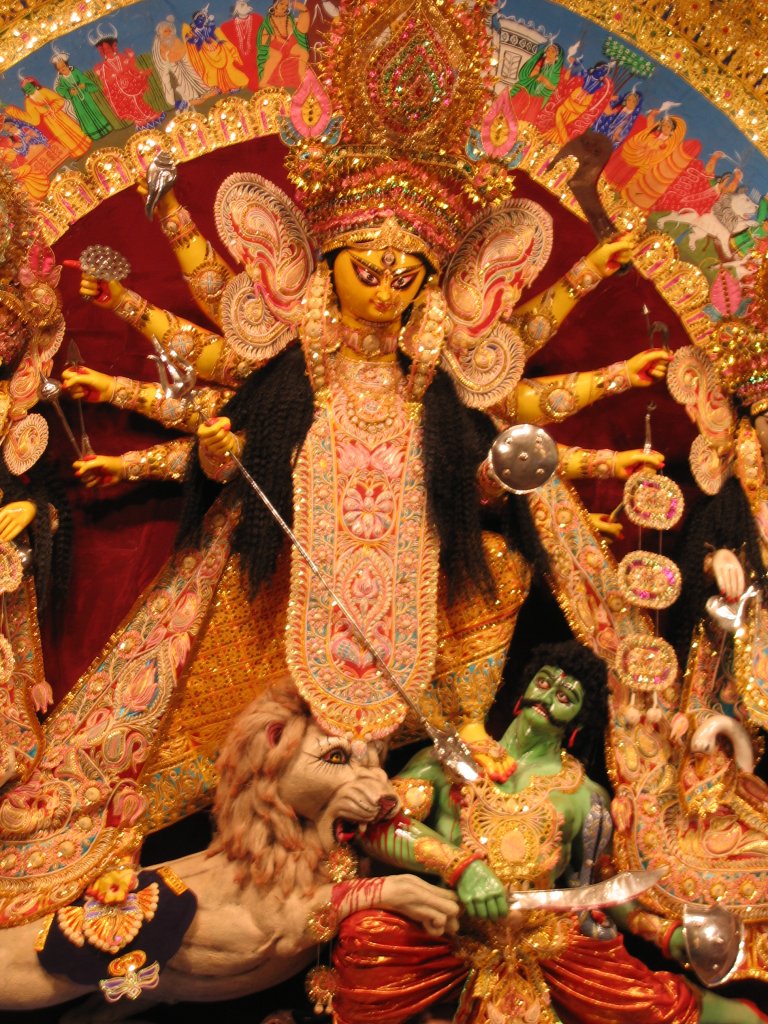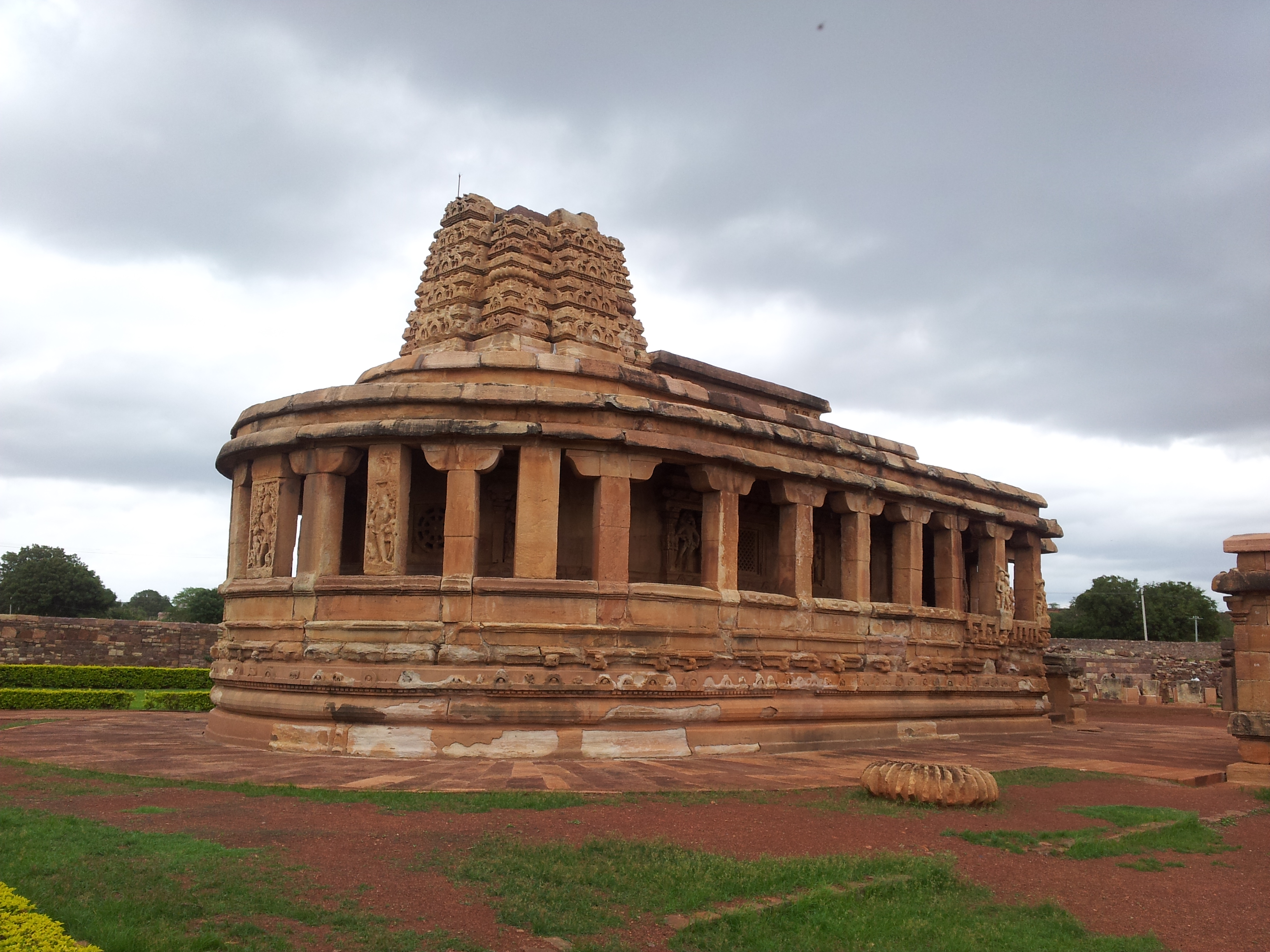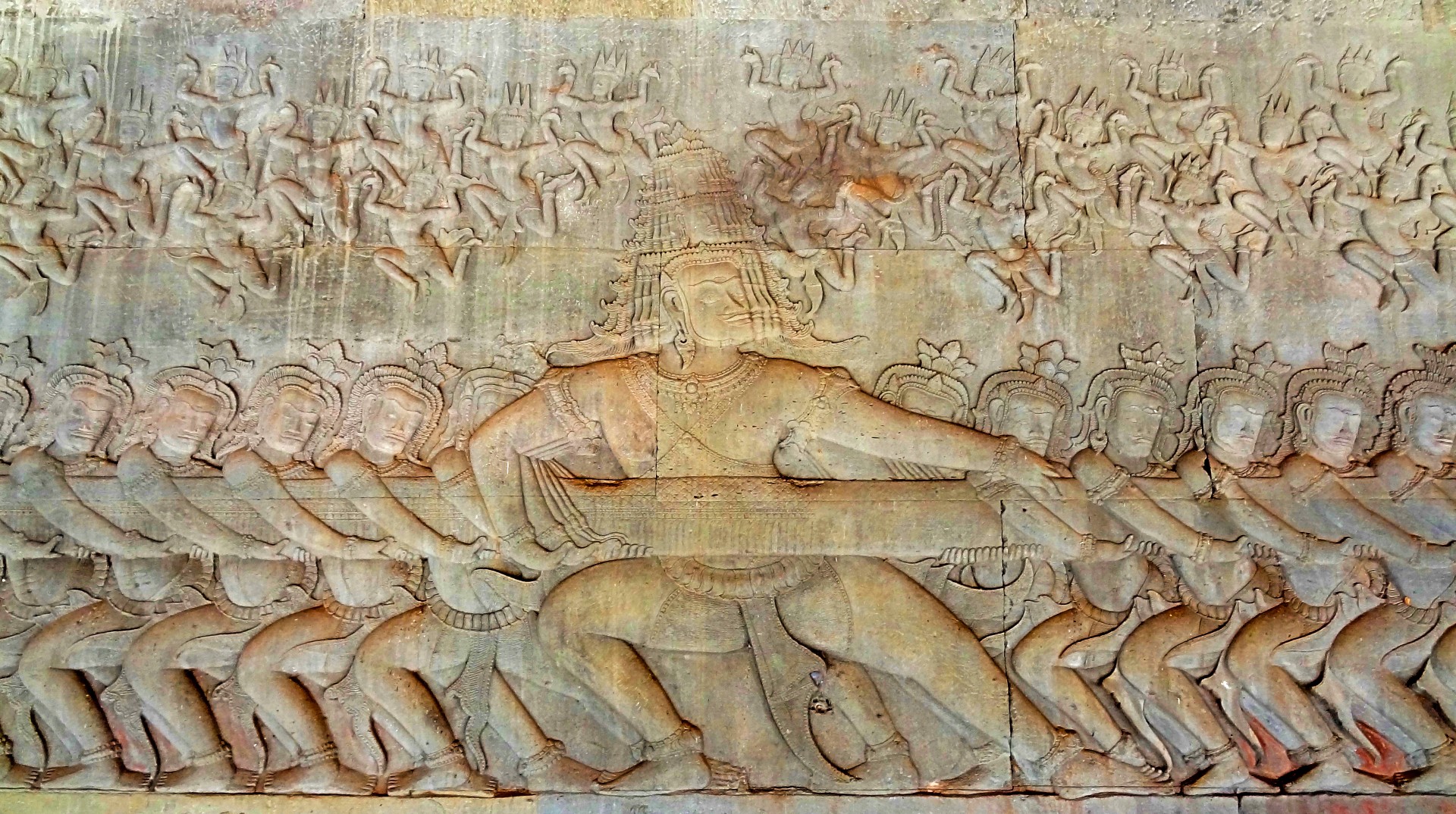|
Raktadantika
Raktadantika () is a form of the Hindu goddess Durga. According to the ''Devi Mahatmya'', Raktadantika incarnated to slay the descendants of the asura Viprachitti. Another account describes her as a form of Kali Kali (; , ), also called Kalika, is a major goddess in Hinduism, primarily associated with time, death and destruction. Kali is also connected with transcendental knowledge and is the first of the ten Mahavidyas, a group of goddesses who p ..., with an entirely red body. Etymology Raktadantika means “she whose teeth are red in colour”. Legend According to the ''Devi Mahatmya'', Durga is described to have incarnated as Raktadantika to slay and devour the danava children of the asura Viprachitti. Her teeth are described to have turned as red as the flowers of a pomegranate, a consequence of which she was named Raktadantika. This legend is also featured in the Markandeya Purana. She has been described as living in a pomegranate tree. Her red teeth are an ... [...More Info...] [...Related Items...] OR: [Wikipedia] [Google] [Baidu] |
Viprachitti
Viprachitti is a danava featured in Hindu literature, a son of Kashyapa and Danu.A Classical Dictionary of India, p. 173 According to the Mahabharata, he becomes the king of the Danavas after his brother Puloman was killed by Indra. Viprachitti marries Siṃhikā, who is the sister of Hiranyakashipu and a daughter of Diti. He has a son named Svarbhanu. His army is stated to have defeated the devas under the guidance of Svarbhanu. He and his 13 sons were later killed by Goddess Raktadantika, an incarnation of Kali. Incarnation Viprachitti later incarnates as Jarasandha in the Mahabharata. See also *Vemacitrin Vemacitrin (Sanskrit) or Vepacitti (Pāli) is the name of a leader of the Asuras who figures prominently in many Buddhist sūtras ''Sutra'' ()Monier Williams, ''Sanskrit English Dictionary'', Oxford University Press, Entry fo''sutra'' page ... * Danava * Svarbhanu References Characters in the Mahabharata Danavas {{Hindu-myth-stub ... [...More Info...] [...Related Items...] OR: [Wikipedia] [Google] [Baidu] |
Devi
''Devī'' (; ) is the Sanskrit word for 'goddess'; the masculine form is Deva (Hinduism), ''deva''. ''Devi'' and ''deva'' mean 'heavenly, divine, anything of excellence', and are also gender-specific terms for a deity in Hinduism. The concept and reverence for goddesses appears in the Vedas, which were composed around the 2nd millennium BCE. However, they did not play a vital role in that era. Goddesses such as Durga, Kali, Lakshmi, Parvati, Radha, Saraswati and Sita have continued to be revered in the modern era. The medieval era Puranas witness a major expansion in mythology and literature associated with Devi, with texts such as the ''Devi Mahatmya'', wherein she manifests as the ultimate truth and supreme power. She has inspired the Shaktism tradition of Hinduism. Further, Devi is viewed as central in the Hindu traditions of Shaktism and Shaivism. Etymology ''Devi'' and ''deva'' are Sanskrit terms found in Vedic literature around the 3rd millennium BCE. ''Deva'' is masculi ... [...More Info...] [...Related Items...] OR: [Wikipedia] [Google] [Baidu] |
Durga
Durga (, ) is a major Hindu goddess, worshipped as a principal aspect of the mother goddess Mahadevi. She is associated with protection, strength, motherhood, destruction, and wars. Durga's legend centres around combating evils and demonic forces that threaten peace, prosperity, and dharma, representing the power of good over evil. Durga is believed to unleash her divine wrath against the wicked for the liberation of the oppressed, and entails destruction to empower creation. Durga is seen as a motherly figure and often depicted as a beautiful woman, riding a lion or tiger, with many arms each carrying a weapon and often defeating demons. She is widely worshipped by the followers of the goddess-centric sect, Shaktism, and has importance in other denominations like Shaivism and Vaishnavism. The most important texts of Shaktism, Devi Mahatmya and Devi Bhagavata Purana, revere Devi (the Goddess) as the primordial creator of the universe and the Brahman (ultimate truth and reali ... [...More Info...] [...Related Items...] OR: [Wikipedia] [Google] [Baidu] |
Devi Mahatmya
The ''Devi Mahatmya'' or ''Devi Mahatmyam'' () is a Hindu philosophical text describing the Goddess, known as Mahadevi, Adi Parashakti or Durga, as the supreme divine parabrahma, ultimate reality and creator of the universe. It is part of the Markandeya Purana, Mārkandeya Purāna (chapters 81 to 93). ''Devi Mahatmyam'' is also known as the ''Durgā Saptashatī'' () or Śata Chandī (शत् चंडी) and ''Chandi Path'' (). The text contains 700 verses arranged into 13 chapters. It is one of the most important texts in Shaktism, along with ''Devi-Bhagavata Purana'' and Devi Upanishad. The text is one of the earliest extant complete manuscripts from the Hindu traditions which describes reverence and worship of the feminine aspect of God. The ''Devi Mahatmyam'' describes a storied battle between good and evil, where the Devi manifesting as goddess Durga leads the forces of good against the demon Mahishasura—the goddess is very angry and ruthless, and the forces of goo ... [...More Info...] [...Related Items...] OR: [Wikipedia] [Google] [Baidu] |
Asura
Asuras () are a class of beings in Indian religions, and later Persian and Turkic mythology. They are described as power-seeking beings related to the more benevolent Devas (also known as Suras) in Hinduism. In its Buddhist context, the word is translated as "titan" or " antigod". According to Hindu texts, the asuras are in constant fear of the devas. Asuras are described in Indian texts as powerful superhuman demigods with good or bad qualities. In early Vedic literature, the good Asuras are called '' Adityas'' and are led by Varuna, while the malevolent ones are called '' Danavas'' and are led by Vritra. In the earliest layer of Vedic texts, Agni, Indra and other gods are also called Asuras, in the sense of their being "lords" of their respective domains, knowledge and abilities. In later Vedic and post-Vedic texts, the benevolent gods are called ''Devas'', while malevolent Asuras compete against these Devas and are considered "enem ... [...More Info...] [...Related Items...] OR: [Wikipedia] [Google] [Baidu] |
Kali
Kali (; , ), also called Kalika, is a major goddess in Hinduism, primarily associated with time, death and destruction. Kali is also connected with transcendental knowledge and is the first of the ten Mahavidyas, a group of goddesses who provide liberating knowledge. Of the numerous Hindu goddesses, Kali is held as the most famous. She is the preeminent deity in the Hindu tantric and the Kalikula worship traditions, and is a central figure in the goddess-centric sects of Hinduism as well as in Shaivism. Kali is chiefly worshipped as the Divine Mother, Mother of the Universe, and Divine feminine energy. The origins of Kali can be traced to the pre-Vedic and Vedic era goddess worship traditions in the Indian subcontinent. Etymologically, the term ''Kali'' refers to one who governs time or is black. The first major appearance of Kali in the Sanskrit literature was in the sixth-century CE text '' Devi Mahatmya''. Kali appears in many stories, with the most popular one bein ... [...More Info...] [...Related Items...] OR: [Wikipedia] [Google] [Baidu] |
Danava (Hinduism)
In Hindu mythology, the danavas are a race descending from Kashyapa and his wife Danu, a daughter of the progenitor god, Daksha. It is mentioned that there are one hundred danavas. Origin The danavas are a mythological race of asuras, the half-brothers to the devas and daityas that are found in a range of Hindu texts. The danavas are a part of a larger group of the asuras, and are typically portrayed as opposed to the Hindu deities. However, historically, their role in Hinduism is varied and at times, the distinction between the danavas and Hindu deities is complex and they are difficult to distinguish from one another. Etymology The name ''danavas'' stems from the mother's name: Danu. Both danavas and Danu are derived from the Vedic word ''Da'' meaning 'to give.' Ananda Coomaraswamy suggests this word connotes generosity. Another interpretation of their name is associated with Danu's relationship with her first son (and demon), Vritra. In Indian mythology, in an attem ... [...More Info...] [...Related Items...] OR: [Wikipedia] [Google] [Baidu] |




